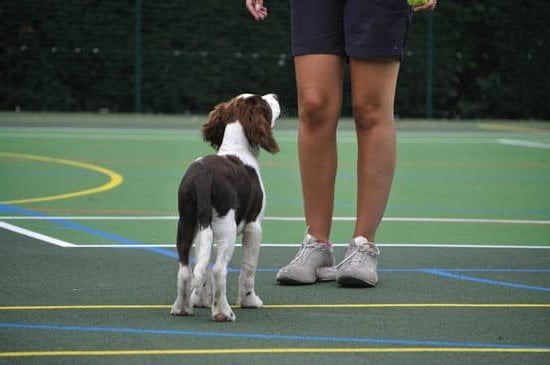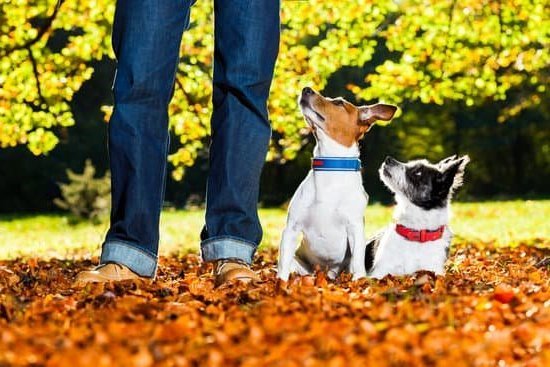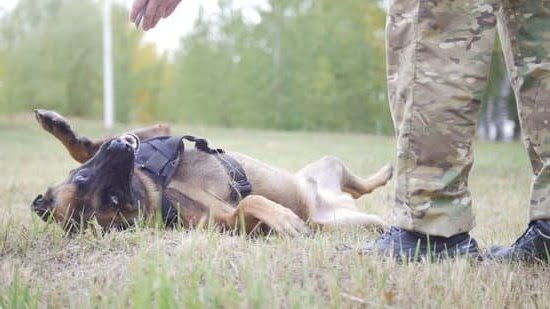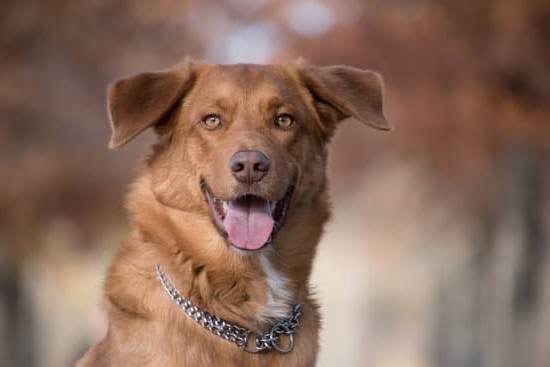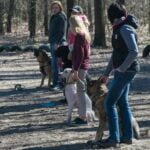Are you wondering, “Why does my potty trained dog pee in the house?” It can be incredibly frustrating when a dog who is successfully potty trained suddenly starts having accidents indoors. This unexpected behavior can leave pet owners feeling confused and exasperated. Understanding the reasons behind this regression in behavior is crucial in addressing the issue effectively.
There are several common reasons why a potty trained dog may start peeing inside the house. Stress and anxiety can play a significant role in causing your furry friend to have accidents. Changes in routine, environment, or even new additions to the household can trigger stress in dogs, leading to behavioral changes like urinating indoors.
In addition to psychological factors, medical issues could also be responsible for your potty trained dog’s sudden urinary accidents. It’s essential to rule out any underlying health problems that may be contributing to this behavior before assuming it’s solely a behavioral issue. By identifying the root cause of your dog’s indoor urination, you can take appropriate steps to address the problem and help your beloved pet get back on track with their potty training.
Common Reasons Behind a Potty Trained Dog Regressing in Their Behavior
One of the most frustrating things for a dog owner is having a potty trained dog suddenly start peeing in the house. But why does this behavior happen, especially when the dog was previously well-trained? There can be several common reasons behind a potty trained dog regressing in their behavior, and it’s essential to address these issues promptly to prevent further accidents.
One possible reason for a potty trained dog peeing in the house could be stress or anxiety. Just like humans, dogs can experience emotions that affect their behavior.
Changes in the environment, such as moving to a new home, introducing a new pet or family member, or even loud noises like fireworks, can trigger anxiety in dogs and lead them to urinate indoors. It’s important to identify and address any sources of stress to help your dog feel more secure and reduce accidents.
Another factor to consider when dealing with a potty trained dog who pees inside is medical issues. Urinary tract infections, bladder stones, or other health problems can cause discomfort or urgency in urination for your dog.
If you notice any other symptoms such as frequent urination, blood in the urine, or straining while peeing, it’s crucial to consult your veterinarian for proper diagnosis and treatment. By addressing any underlying medical issues, you can help your potty trained dog get back on track with their bathroom habits.
| Common Reasons Behind Regressing Behavior | Addressing the Issue |
|---|---|
| Stress and Anxiety | Identify sources of stress and create a calm environment |
| Medical Issues | Consult a veterinarian for diagnosis and treatment |
Stress and Anxiety as Possible Causes for a Potty Trained Dog Peeing Indoors
One of the common reasons why a potty trained dog may start peeing in the house is due to stress and anxiety. Dogs, like humans, can experience stress from various factors such as changes in their environment, routine disruptions, or even loud noises.
This stress can manifest in behaviors like urinating indoors, even if they have been previously fully potty trained. It is important for dog owners to understand that their furry companions can be sensitive to changes and may react through inappropriate elimination.
In addition to stress triggers, anxiety can also play a significant role in causing a potty trained dog to pee in the house. Separation anxiety, in particular, is a common reason behind this behavior. When dogs feel anxious about being left alone or experiencing separation from their owners, they may resort to urine marking as a way to cope with their emotions.
This behavior is not done out of spite or disobedience but rather as an expression of distress. Recognizing signs of anxiety in dogs and addressing them appropriately can help prevent accidents inside the house.
Moreover, it is essential for pet owners to consider any recent changes that could be contributing to their potty trained dog’s indoor accidents. Whether it is a new family member, a different schedule, or even moving homes, these alterations can affect a dog’s emotional well-being and lead to sudden regression in their potty training.
By identifying and addressing the underlying causes of stress and anxiety in dogs, pet owners can work towards helping their furry friends feel more secure and avoid unwanted accidents at home.
| Stress Triggers | Anxiety Signs |
|---|---|
| Sudden changes in the environment | Excessive barking or howling when left alone |
| Loud noises or construction nearby | Pacing or destructive behavior when separated from owner |
| Routine disruptions | Loss of appetite or excessive drooling when anxious |
Medical Issues That Could Lead to a Potty Trained Dog Urinating Inside
One of the common frustrations for dog owners is when their potty trained dog starts urinating inside the house, despite previously having good bathroom habits. When faced with this situation, it’s important to consider that there could be underlying medical issues causing this behavior. If your dog is suddenly having accidents indoors, it’s crucial to rule out any potential health problems that may be contributing to this change in behavior.
There are several medical issues that could lead to a potty trained dog urinating inside the house. One possible cause is a urinary tract infection (UTI), which can make it difficult for dogs to hold their bladder or may cause them to associate pain with urination.
Other conditions such as diabetes, kidney disease, or bladder stones can also result in changes in a dog’s bathroom habits. It’s essential to consult with a veterinarian if you suspect your potty trained dog may be experiencing any of these medical issues.
To address the question of “why does my potty trained dog pee in the house,” it’s important not to overlook the role that medical problems can play in this behavior. By promptly seeking veterinary care and getting appropriate treatment for any underlying health issues, you can help your furry friend get back on track with their potty training.
Additionally, understanding and addressing your dog’s medical needs will not only improve their bathroom habits but also contribute to their overall well-being and quality of life.
- Urinary tract infection (UTI)
- Diabetes
- Kidney disease
- Bladder stones
The Impact of Changes in Routine or Environment on a Potty Trained Dog’s Behavior
It can be quite frustrating for dog owners to deal with the issue of a potty trained dog peeing in the house, especially when they have worked hard to instill good potty habits in their furry friend. One common reason behind this regression in behavior is the impact of changes in routine or environment on a potty trained dog’s behavior. Dogs are creatures of habit, and any disruptions to their usual schedule or environment can lead to accidents indoors.
Here are some factors that may contribute to a potty trained dog peeing in the house due to changes in routine or environment:
- Routine Changes: Dogs thrive on consistency, so any sudden alterations to their feeding times, walking schedules, or playtime routines can throw them off. This lack of predictability can sometimes result in accidents inside the house.
- Environmental Changes: Moving to a new home, introducing new pets or family members, or even remodeling your living space can cause stress and confusion for your dog. In response, they may resort to urinating indoors as a way of coping with these changes.
- Traveling or Boarding: Dogs may struggle to adjust when taken out of their familiar surroundings, such as when traveling or being boarded at a kennel. The stress of being in a new place can lead to accidents until they feel more comfortable and settled.
By understanding how changes in routine or environment can impact your potty trained dog’s behavior, you can take steps to help them adjust more smoothly and reduce the likelihood of indoor accidents. Consistency, patience, and positive reinforcement will be key in helping your furry companion adapt to these changes successfully.
How to Properly Reinforce Potty Training in Dogs to Prevent Accidents in the House
Potty training a dog can be a challenging process, and it can be especially frustrating when a potty trained dog starts peeing in the house. To prevent accidents and reinforce good behavior, it is essential to understand the potential reasons behind this regression in behavior. There could be various factors at play, such as stress, anxiety, medical issues, changes in routine, or even territorial marking.
One common reason for a potty trained dog to pee in the house is stress and anxiety. Dogs are highly sensitive animals, and any changes in their environment or routine can cause them to feel anxious. This anxiety may manifest as indoor urination, as they seek comfort or try to establish familiarity by scent-marking their territory. It’s crucial to address any sources of stress for your dog and provide reassurance through positive reinforcement.
Another factor that may lead to a potty trained dog peeing indoors is an underlying medical issue. Health problems like urinary tract infections or bladder stones can cause discomfort or urgency in urination, leading to accidents in the house. If you notice your potty trained dog exhibiting unusual behaviors or having difficulties with bladder control, it is essential to consult with a veterinarian to rule out any medical concerns and provide appropriate treatment.
The Importance of Consistency and Positive Reinforcement in Maintaining Potty Training
Maintaining consistent potty training practices and using positive reinforcement are crucial factors in preventing a potty trained dog from peeing in the house. Dogs thrive on routine and structure, so any deviation from their established bathroom schedule can lead to accidents indoors.
Consistency in taking your dog outside at regular intervals, especially after meals, playtime, and naps, reinforces the desired behavior of going potty outside. By sticking to a routine, you help your dog understand where they should be relieving themselves.
Positive Reinforcement Techniques
Positive reinforcement involves rewarding your dog for appropriate behavior, such as going potty outside. This could include verbal praise, treats, or even a favorite toy. When your potty trained dog successfully goes to the bathroom outside, immediately praise them and give them a reward. This positive association encourages them to repeat the behavior in the future. On the other hand, avoid punishing your dog for accidents inside the house as it can create fear and confusion rather than promote learning.
Consistency Is Key
Consistency goes beyond just sticking to a potty schedule. It also means using the same cues or commands each time you take your dog outside to go to the bathroom. Whether it’s a specific phrase or signal, consistency helps reinforce the connection between the action (going potty) and its proper location (outside).
Additionally, consistency should be applied by all members of the household to avoid confusing signals for your furry friend. Remember that re-training a potty trained dog who pees inside requires patience and persistence in implementing these strategies consistently.
Tips for Cleaning Up Accidents and Preventing Future Incidents in the House
Accidents happen, even with potty trained dogs. Cleaning up after your furry friend and taking steps to prevent future incidents can help maintain a clean and odor-free home. Here are some tips for effectively managing accidents and ensuring your potty trained dog stays accident-free indoors.
Immediate Cleanup
When you catch your dog peeing in the house, it’s essential to act quickly to clean up the mess. Use paper towels to soak up as much urine as possible, then clean the area with a pet-safe cleaner to remove any scent that may attract your dog back to the same spot. Avoid using ammonia-based cleaners, as they can mimic the scent of urine and encourage repeat accidents.
Stain Removal
To prevent lingering odors and stains, make sure to thoroughly clean carpets, rugs, or furniture where your dog has had accidents. Consider using a professional-grade enzymatic cleaner specifically designed to break down pet odors and stains. This will help eliminate any traces of urine that could lead your dog to mark the same spot again.
Preventing Future Accidents
Consistency is key when preventing future potty accidents in the house. Maintain a regular feeding schedule for your dog and take them outside frequently for bathroom breaks. Monitor their behavior closely, especially during times of stress or change in routine. Provide positive reinforcement when they go potty outside, reinforcing good habits and discouraging indoor accidents.
By following these tips for cleaning up accidents promptly and preventing future incidents, you can help your potty trained dog maintain good bathroom manners in the house. Remember that patience and persistence are crucial when dealing with a dog who pees indoors despite being potty trained. With consistency and positive reinforcement, you can help your furry companion stay accident-free inside your home.
Conclusion
In conclusion, when faced with the frustrating issue of a potty trained dog peeing in the house, it is essential to approach the situation with patience and understanding. While it can be tempting to react with frustration or anger, it is important to remember that there are various reasons why a potty trained dog may regress in their behavior.
Understanding these reasons, such as stress, anxiety, medical issues, or changes in routine, can help address the root cause of the problem more effectively.
Consistency and positive reinforcement play a crucial role in maintaining a dog’s potty training. By consistently following a routine, providing positive feedback for desired behaviors, and addressing any underlying issues promptly, pet owners can help prevent accidents in the house from occurring. It is also important to remember that accidents may happen despite our best efforts, and being prepared with proper cleaning methods and strategies can help minimize future incidents.
Overall, dealing with a potty trained dog who pees in the house requires patience, empathy, and dedication. By identifying the potential causes behind this behavior and taking proactive steps to reinforce potty training techniques, pet owners can effectively address the issue and support their furry companions.
Remember that every dog is unique, so it may take time to find the right approach that works for your specific pet. With consistent effort and a compassionate attitude, most dogs can overcome this challenge and continue to thrive in their home environment.
Frequently Asked Questions
How Do I Stop My Potty Trained Dog From Peeing in the House?
To stop your potty trained dog from peeing in the house, it’s crucial to rule out any medical issues first by consulting a veterinarian. If your dog is healthy, revisit potty training basics, maintain a consistent schedule for outdoor bathroom breaks, reward good behavior, and thoroughly clean any indoor accidents to remove lingering scents that may encourage repeat occurrences.
Why Is My Dog Peeing Inside After Being Potty Trained?
Dogs might start peeing inside after being potty trained due to various reasons such as stress, anxiety, changes in environment or routine, territorial marking, or even certain medical conditions. It’s important to identify the underlying cause before addressing the behavior effectively. Consistency in training and patience are key in resolving this issue.
Is My Dog Peeing in the House for Attention?
Some dogs may pee in the house for attention-seeking purposes, especially if they feel neglected or isolated. However, it’s essential to consider other potential causes such as anxiety, fear, submission gestures, or medical problems before attributing the behavior solely to seeking attention.
Providing adequate physical exercise, mental stimulation, positive reinforcement for desired behaviors can help address attention-seeking urination if that indeed proves to be the issue at hand.

Welcome to the blog! I am a professional dog trainer and have been working with dogs for many years. In this blog, I will be discussing various topics related to dog training, including tips, tricks, and advice. I hope you find this information helpful and informative. Thanks for reading!

